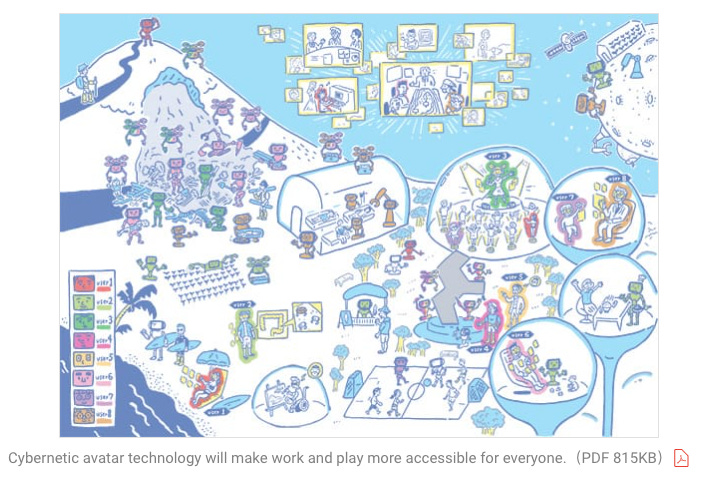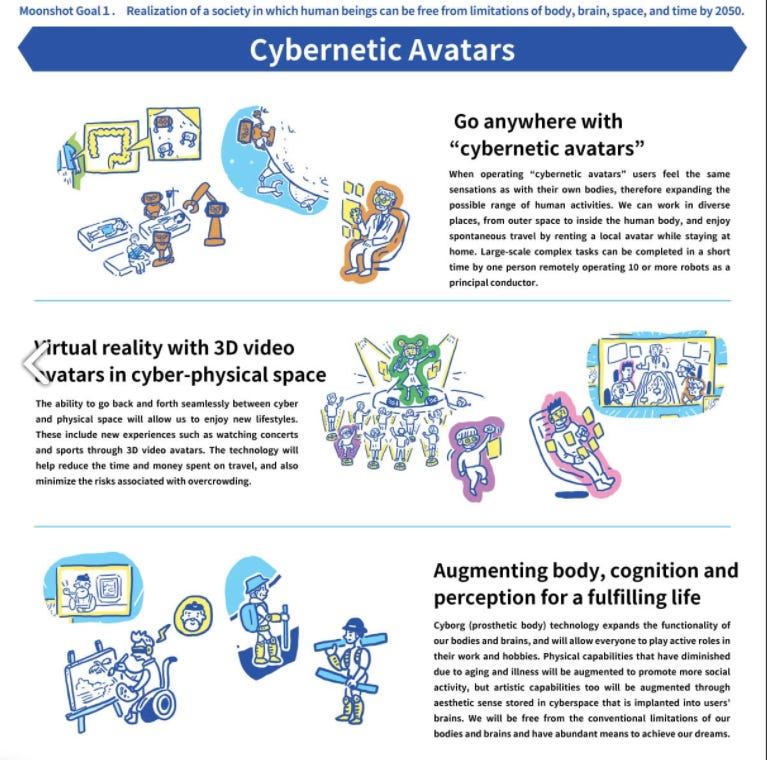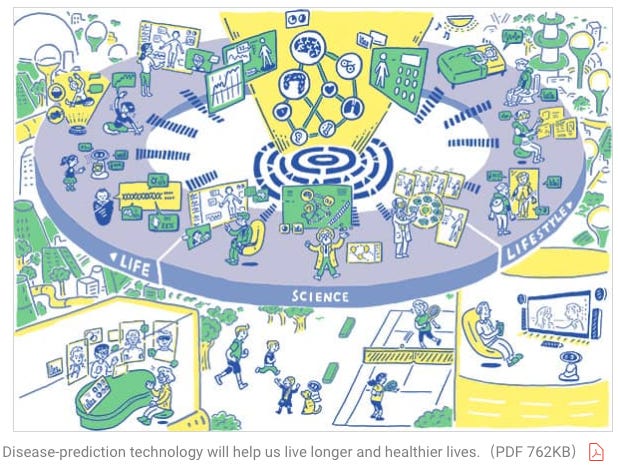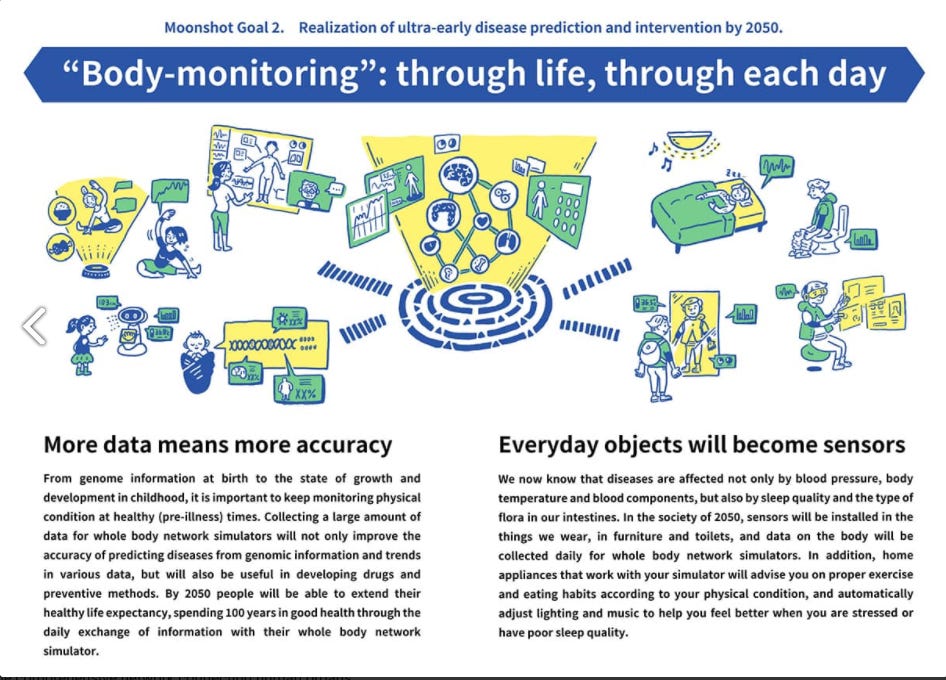The Moonshot R&D Program
An overview of Japan's Black Mirror-esque solution to its demographic challenges
The Moonshot Research and Development Program originated in 2018 as a result of the Japanese government’s ambition to improve and transform society in the face of demographic, economic, and environmental challenges.
Inspired by the US’ Apollo Program, Moonshot aims to fund “disruptive innovation” as a means to deliver a total of 9 goals in these three areas.
Below you can read what the goals are:
Decoupling mind and body, extreme biosecurity, quantum computers, weather modification, AI robots that live alongside humans…they definitely got the “disruptive” part right, didn’t they?
And believe me, the ‘headlines’ above are barely scratching the surface in terms of what Moonshot R&D actually entails.
Take goal number 1, for example, which already sounds pretty far out there. Here are some more interesting details:
So in order to deal with its ageing population and other demographic (as well as non-demographic) challenges, the Japanese government wants to create a world in which people can turn themselves into “cybernetic avatars” that can work and entertain themselves remotely.
But don’t worry, you won’t be stuck in the metaverse — the whole point is for you to be able to seamlessly switch between cyber and physical spaces and create “new lifestyles” in the process (I hope the Black Mirror reference in the title is a bit clearer now).
In the conclusion to my last article I talked about the kind of ethos that permeates through the worldview of individuals like Bill Gates — this conception of humans as mere biological machines that can be tweaked and tinkered with in order to bring about some sort of ‘ideal’ condition that is supposedly free of pain and suffering.
I have very little doubt that this is precisely the kind of mentality that runs through the minds of the directors of the Moonshot Program, especially when it comes to the getting rid of suffering part, as you can see from these diagrams about goal number 2 (ultra-early disease prediction systems):
When one’s view of an ideal society is based on endless efficiency, optimisation, and free-flowing data streams, the concept of “body-monitoring through life, through each day” in order to prevent illness simply becomes a matter of logical consequence.
I must say that I quite enjoy the directness of these documents. The Japanese certainly do not mince their words when it comes to illustrating their vision for the future of society.
This may have something to do with the fact that according to the Moonshot Program’s directors, the Japanese public was actually consulted prior to the setting of the goals, which made me quite curious — could this be the kind of future that Japanese people actually want?
To be honest, I don’t know. I don’t feel particularly well-placed to answer that question.
What I do know is that regardless of what the Japanese public thinks and feels, this is most certainly the direction towards which their nation is headed, as demonstrated by other similar government-sponsored initiatives like “Society 5.0” and “New Capitalism”, all of which are essentially homologous to one another.
Oh, and did I mention the fact that this is all perfectly aligned with the UN Sustainable Development Goals (UN SDGs)?
That’s right. The Japanese Science and Technology Agency (JST), which is in charge of Moonshot, is also on board with Agenda 2030, as shown in this very interesting paragraph taken from its website:
Once again, the message is quite clear: the pursuit of the SDGs is directly linked to the implementation of a “Super Smart Society” (Society 5.0) and everything that this entails — smart cities, digital ubiquitousness, pre-illness, pre-crime, IoT, blockchain identity, human augmentation — the whole package.
I guess the question here is whether this whole “Super Smart Society” thing is a fruit of the Japanese interpretation of the SDGs, or whether all nations who have committed themselves to these goals are heading in the same direction.
What do you think?
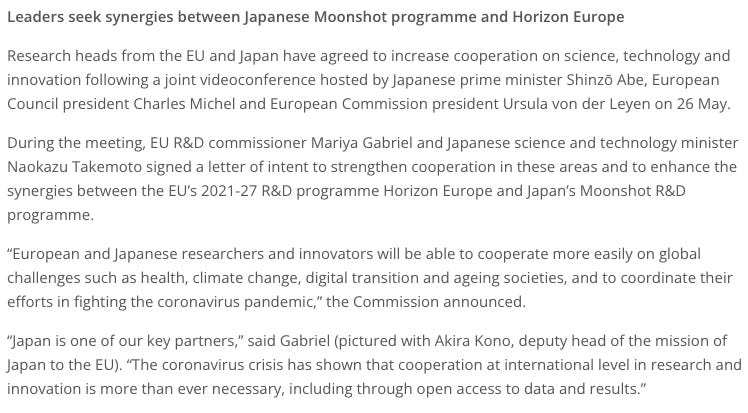
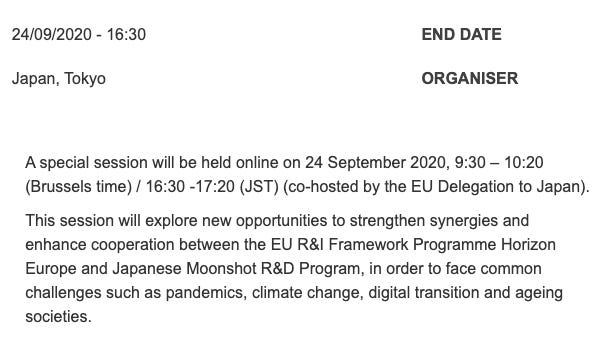

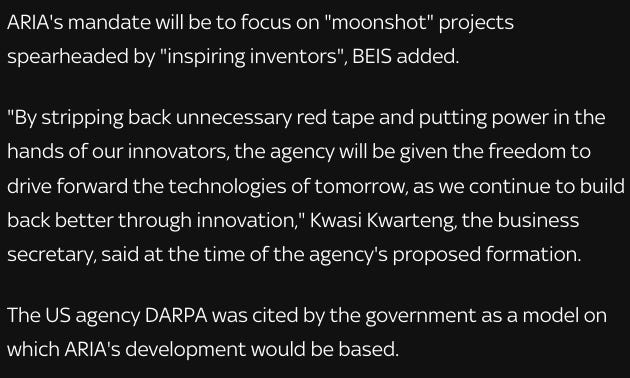
Further reading:
ARIA — UK’s Advanced Research and Invention Agency
SPRIN-D — Germany’s Federal Agency for Disruptive Innovation
Wellcome Leap — the Wellcome Trust’s advanced research funding programme






